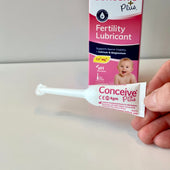More governments are worried about fertility rates
A recent United Nations fertility report collates some interesting statistics about the fertility of the world as a whole. Put simply, – and no surprises here – it finds that the developed world is not reproducing at the rate necessary to ensure the replacement of generations.
Further compounding this problem, a mentality of low fertility may well be passed onto our fewer and fewer children as has happened in China as a result of the one child policy. No wonder another key finding of the UN report is that there are an ever increasing number of governments who are worried about fertility rates. The report states that:
Fertility has declined worldwide to unprecedented levels since the 1970s. Total fertility fell in all but six of the 186 countries or areas for which data are available for all three periods considered in the analysis. In the most recent period covered, 80 countries or areas had a total fertility below 2.1 children per woman, the level required to ensure the replacement of generations in low mortality populations.
As would be expected, fertility is particularly and quite shockingly low in the developed world:
By 2000-2011, no European or North American countries had total fertility above 2.2 children per woman and only four (France, Iceland, Ireland and the United States of America) had levels above 2.0 children per woman. Total fertility was below 1.4 children per woman in about half of the developed countries. Levels of childlessness (i.e. women who choose, or are unable, to have children at all) are highest in prosperous nations who one would think would be able to afford children. America’s childless rate is among the highest in the world (19%), despite the average age of first birth being 25 (fairly average). It seems that childlessness is becoming a common life choice. Singapore tops the list, with a childless rate of 23%, followed by Austria, the U.K., Finland, Bahrain, and Canada.
Among other cultural factors, studies have shown that as more women enter the workforce at high levels childless rates go up because some women feel that they will gain more emotional satisfaction from maintaining their careers. The cost of raising a family also has an effect, as does the social acceptability of not having children. However, this report makes it very clear that motherhood is also a very necessary and highly valued choice, which society must continue to support and value.












